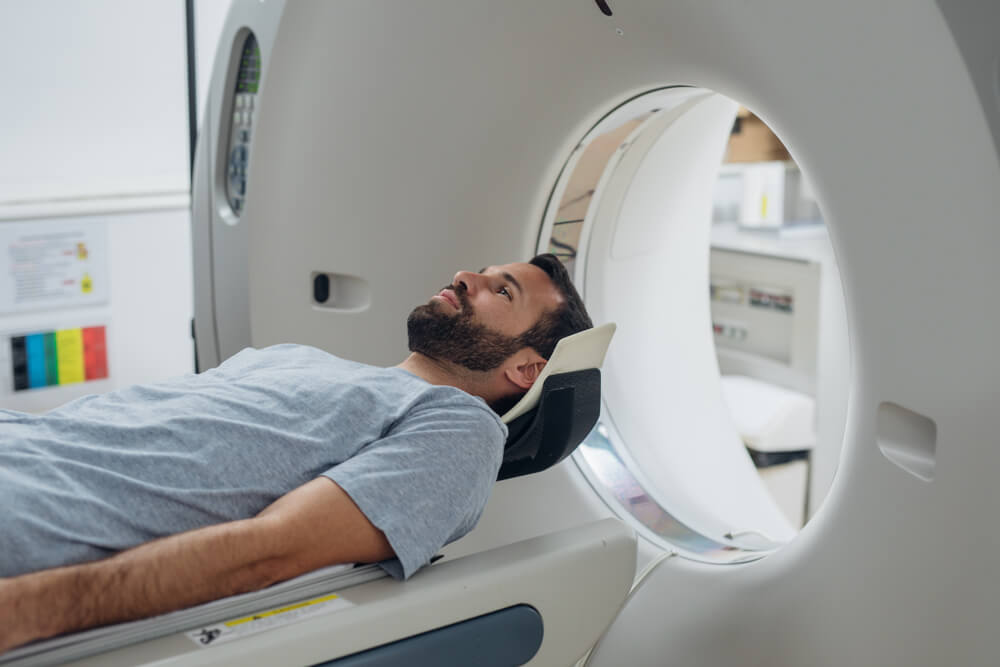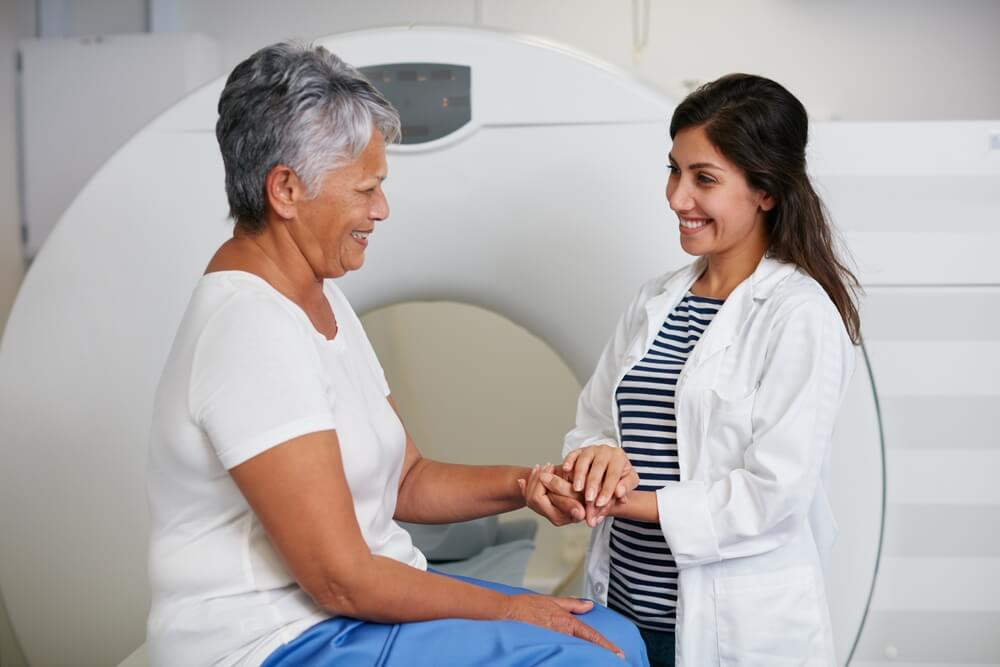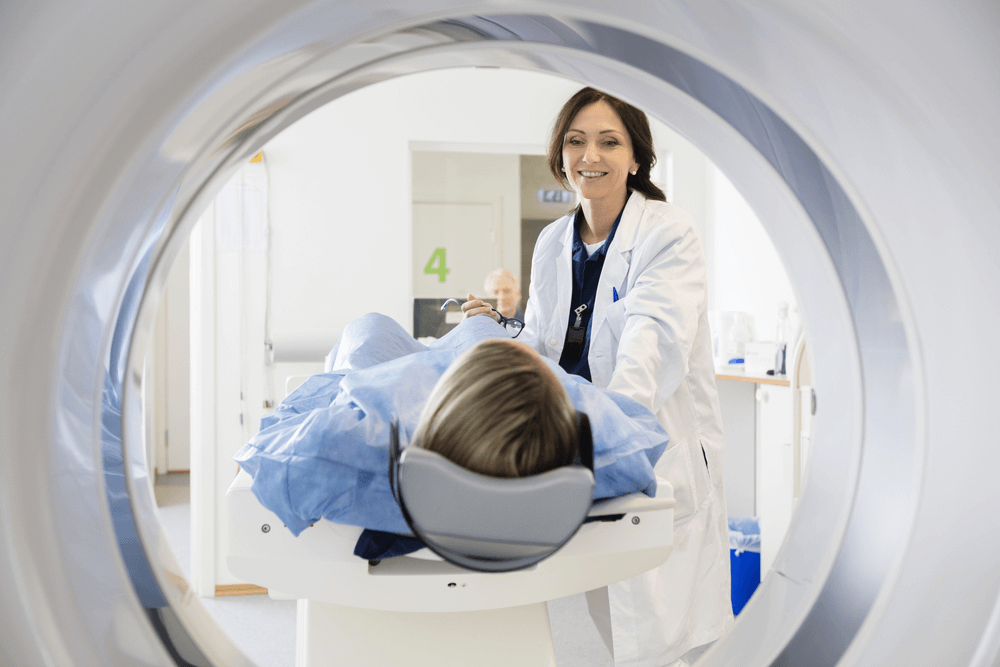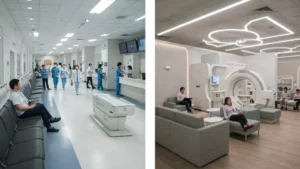Medical imaging plays a crucial role in diagnosing various health conditions, and Magnetic Resonance Imaging (MRI) is one of the most powerful and versatile tools available to modern medicine.
If you’ve been scheduled for an MRI, you might have questions about what to do before the procedure, particularly concerning eating and drinking.
The issue of whether you can eat before an MRI is a common concern among patients. MRI scans require patients to lie still inside a tunnel-like machine while radio waves and strong magnetic fields create detailed images of internal organs and tissues.
As a result, certain precautions need to be taken to ensure the accuracy and safety of the procedure.
In this helpful guide, we will look into the crucial aspects of eating before an MRI, discussing the potential risks, the general guidelines, and the importance of following specific instructions provided by healthcare professionals.
What is an MRI and its Importance?
MRI is a non-invasive medical imaging technique that uses magnetic fields and radio waves to create detailed images of the body’s internal structures. Its importance lies in revolutionizing healthcare by providing a clear visualization of soft tissues, aiding in the diagnosis of neurological disorders, musculoskeletal conditions, cardiovascular health, abdominal and pelvic issues, cancer detection, and vascular abnormalities.
With its ability to offer precise and early diagnoses, MRI significantly enhances treatment planning and patient outcomes, making it an invaluable tool in modern medicine.

How MRI works
MRI’s ability to provide high-resolution images of soft tissues makes it an essential tool for diagnosing various medical conditions, offering valuable insights to healthcare professionals for accurate treatment planning and improved patient care. Here’s how it works:
- Magnetic Alignment: The patient lies inside an MRI machine, which houses a powerful magnet. This magnet creates a strong and uniform magnetic field that temporarily aligns the protons in the body’s hydrogen atoms.
- Radio Wave Pulse: When a brief radio wave pulse is applied to the body, it disturbs the aligned protons, knocking them out of their equilibrium state.
- Signal Detection and Image Creation: As the protons realign with the magnetic field, they emit radio signals. Sensitive receivers in the MRI machine detect these signals and, with the help of sophisticated computer algorithms, convert them into detailed cross-sectional images of the body’s internal structures.
Preparing for an MRI – Should You Eat?
When preparing for an MRI, many patients wonder whether they should eat before the procedure. The answer to this question depends on the type of MRI being performed and the specific instructions provided by the healthcare provider. Here’s a helpful list of reasons why you can’t eat before an MRI:
- Fasting Requirements: In some cases, patients may be required to fast before an MRI, especially if the scan involves the abdominal area. Fasting typically involves refraining from eating or drinking for a specific period before the procedure. This is done to minimize potential interference from food in the imaging results.
- Clarify with Your Healthcare Provider: It’s crucial to communicate with your healthcare provider or the MRI facility to understand any specific eating restrictions or guidelines for your particular scan. Different MRI procedures may have different requirements, and your provider will offer you clear instructions based on your individual health condition.
- Stay Hydrated: While fasting might be necessary in certain situations, staying hydrated is generally encouraged before the MRI. Drinking water is usually allowed, but it’s essential to avoid consuming other liquids or foods unless explicitly instructed by your healthcare provider.
Preparing for an MRI can be a straightforward process when you are well informed about the necessary steps to take. Always follow your healthcare provider’s guidance to ensure the best possible imaging results and a smooth and stress-free MRI experience.

Foods to Avoid Before an MRI
Before undergoing an MRI, it’s essential to be aware of specific foods that should be avoided to ensure accurate imaging results and a successful procedure. Here’s a list of foods to steer clear of:
- High Iron Foods: Foods rich in iron can interfere with the MRI’s magnetic fields, potentially distorting the images. Avoid iron supplements, red meat, spinach, and iron-fortified cereals in the 24 hours leading up to the scan.
- Dairy Products: Dairy items, especially those high in calcium, can affect image clarity in certain MRI scans. Skip the milk, cheese, yogurt, and other calcium supplements before the procedure.
- Caffeinated Beverages: Coffee, tea, and energy drinks should be avoided, as caffeine can stimulate the body and lead to involuntary movements during the scan, compromising image quality.
- Fatty and Fried Foods: Foods high in fat content can produce artifacts on MRI images, making it difficult for healthcare professionals to interpret the results accurately. Avoid fried foods, fatty meats, and heavily processed snacks.
- Carbonated Drinks: Bubbles from carbonated beverages can cause discomfort during the MRI and may affect the clarity of images. It’s best to avoid soda and other fizzy drinks before the scan.
- Sugary Foods: High-sugar foods can lead to fluctuations in blood sugar levels, potentially causing restlessness or discomfort during the MRI. Steer clear of sugary snacks and drinks.
Cases where Special Diet Restrictions may apply
While not all MRI procedures require special diet restrictions, there are specific cases where patients may need to follow a fast or adhere to a special diet before undergoing the scan.
Understanding these situations is crucial for ensuring the accuracy and safety of the imaging process. Here are some instances where special diet restrictions may apply:
- Abdominal MRI: When an MRI is focused on the abdominal region, patients may be asked to fast for several hours before the procedure. Fasting helps minimize the presence of food particles in the gastrointestinal tract, reducing potential artifacts and ensuring clearer images of the abdominal organs.
- MRI with Contrast: In some cases, contrast agents may be used during the MRI to enhance image visibility. Patients receiving contrast may be required to fast for a few hours before the scan, as certain foods can affect the body’s response to the contrast material.
- Pediatric MRI: For pediatric patients, especially young children, fasting might be necessary to prevent discomfort during the procedure and to ensure cooperation in staying still inside the MRI machine.
- Claustrophobic Patients: In situations where patients are claustrophobic or anxious about the MRI, a special diet or sedation might be recommended to keep them calm and still during the scan.
- Specific Health Conditions: Patients with certain health conditions, such as diabetes or kidney problems, may require dietary modifications before an MRI to manage their condition effectively during the scan.
- Allergic Reactions: Patients with known allergies to contrast agents or specific foods used in the MRI process may need to avoid these substances before the procedure.

Tips to Prepare for an MRI Scan
Preparing for an MRI scan involves a few essential steps to ensure a smooth and successful imaging experience. Follow these tips to be well-prepared for your upcoming MRI:
- Communicate with Your Healthcare Provider: Discuss any medical conditions, allergies, or previous surgeries with your healthcare provider. Inform them about any implanted medical devices or metal objects in your body, as they may impact the MRI procedure.
- Follow Fasting Instructions: If your MRI requires fasting, adhere to the specific fasting period provided by your healthcare provider. Typically, this involves refraining from eating or drinking for a certain number of hours before the scan.
- Dress Comfortably: Wear loose, comfortable clothing without metal zippers or buttons. MRI facilities usually provide gowns, but comfortable attire can help you relax before the procedure.
- Remove Metal Accessories: Before the scan, remove all metal accessories, such as jewelry, watches, hairpins, and glasses. Metal can interfere with the MRI’s magnetic fields.
- Bring a Companion: If you’re anxious about the procedure or need assistance, consider bringing a friend or family member to support you during the MRI.
- Inform about Medications: Let your healthcare provider know about any medications you are currently taking, as some medications may require adjustments before the MRI.
- Stay Calm and Relaxed: Anxiety can make the MRI experience more challenging. Try relaxation techniques like deep breathing to remain calm during the procedure.
- Avoid Caffeine and Stimulants: If you’re prone to restlessness or nervousness, avoid caffeine and stimulants on the day of the MRI.
- Ask Questions: If you have any doubts or concerns about the MRI, don’t hesitate to ask your healthcare provider for clarification. Understanding the process can ease apprehensions.
- Arrive Early: Arriving a little early allows you to complete any necessary paperwork and gives you time to prepare mentally for the MRI.
Following these tips can ensure a more comfortable and successful MRI scan, enabling healthcare professionals to obtain clear and accurate images for accurate diagnosis and treatment planning.
Get an Accurate Diagnosis
Preparing for an MRI can seem daunting, but it becomes a manageable process with the right information and proper steps. Communicating openly with your healthcare provider, following any fasting or dietary instructions, and being informed about the procedure will contribute to a smooth and successful imaging experience.
If you’re looking for a reliable and advanced medical imaging provider, call us at One Step Diagnostic.
As a leading name in the field, One Step Diagnostic offers state-of-the-art medical imaging services, including MRI scans. Our dedicated team of professionals is committed to providing the highest quality care and accurate imaging results for all our patients. With comfortable and welcoming facilities, we prioritize your comfort and well-being throughout the MRI procedure.
Schedule your MRI appointment today or visit our Houston, Sugar Land, The Woodlands, and Dickinson locations.




